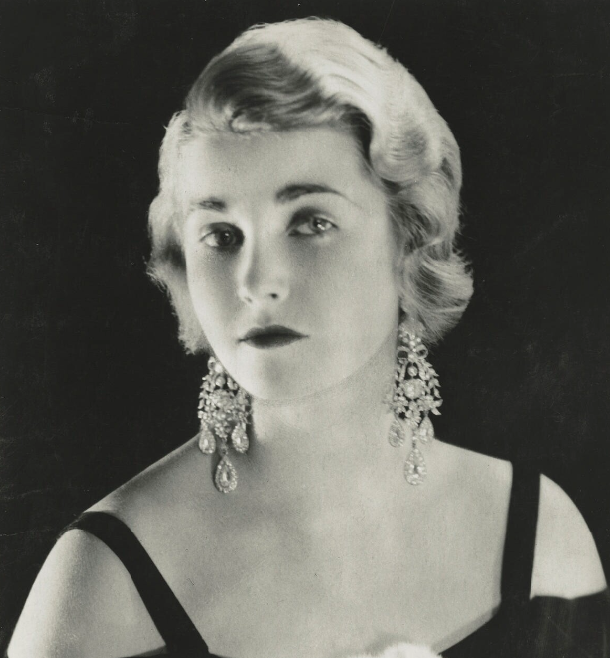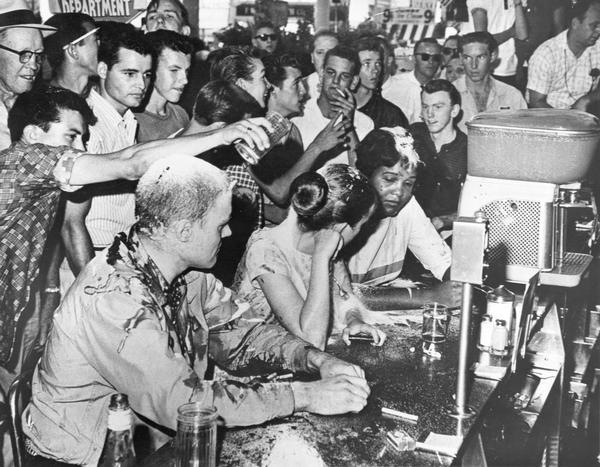At the corner of Broad Street and Eighth Street in downtown Augusta is a boarded-up structure that has sat vacant for 25 years. While the building may look somewhat derelict, the wrap-around red and chrome art deco façade harkens back to a time when Broad Street was the center of commerce in Augusta.
The building once housed the F.W. Woolworth company.
The company, founded by Frank Winfield Woolworth, changed the way Americans shop. Many innovations, such as supplier partnerships, branding, supply chain efficiency and stocking loss leaders started with Woolworth, according to the Woolworth Museum.
The story of the Woolworth family is a rags to riches to rags story.

In the 19th and early 20th centuries, when people shopped, typically they would approach the counter of the shop with a list, and the clerk would walk the aisles gathering the items.
The salesperson would then haggle with the customer over the price of the items.
Frank Woolworth had the idea that items and brands should sell themselves. According to the Woolworth museum, in 1867, at age 15, Woolworth left the family farm in Rodman, N.Y. and struck out for nearby Watertown where he went to night school and got a job at a local mercantile store.
Unfortunately, Woolworth turned out to be a lousy shop assistant as he was not keen on haggling. Woolworth was demoted to window washer and stock boy, and that is when he came up with the idea that would make him one of America’s richest men.
Woolworth decided to create window displays using surplus fabric, and the idea worked. The window displays drew in customers and the displayed items flew off the shelf.
The next idea Woolworth had was to develop direct relationships with manufacturers of small trinkets and candy. He built displays advertising five cent items, and they became so popular that Woolworth created a 10 cent counter as well.
The first “five and dime” venture that Woolworth opened in Utica, N.Y. failed, but undeterred, Woolworth tried again in Lancaster, Penn., and the store immediately became a success among the frugal Amish community.
Woolworth then designed and built entire display cases and allowed customers to browse the aisles themselves, eliminating the haggling salesperson.
By 1912, F.W. Woolworth Company had grown into an international company with outlets all over North America and Great Britain.
While there is no evidence that F.W. Woolworth ever visited Augusta, according to local historian Doug Herman, his brother and business associate C.S. Woolworth, a golf enthusiast, came to Augusta and stayed at the Bon Air Hotel in 1919.
According to David Heymann in his book “Poor Little Rich Girl: The Life and Legend of Barbara Hutton,” which is about Woolworth’s granddaughter, Barbara Hutton, Frank Woolworth was every bit as frugal as his original Amish customers. Heymann recalls stories of Woolworth keeping thousands of dollars in undeposited checks in his wallet but would have the servants on their hands and knees looking for a quarter that might have fallen out of his pocket.

However, Woolworth’s granddaughter, Hutton, would not be so frugal.
Upon reaching her majority, Hutton inherited the equivalent of $1 billion in today’s money and would die in 1979 virtually penniless.
During the worst part of the Depression, Hutton was treated to a $60,000 debutante ball, an enormous amount of money at the time to spend frivolously. The press and public responses were so brutal that she had to flee to Europe to escape the flashbulbs and jeers.
According to Heymann, that was when Hutton began collecting titles through marriage. Hutton was married to two princes, two counts and a baron, among her total of seven husbands. Only film star Cary Grant, to whom she was married from 1942 to 1945, left her as wealthy as he found her; most of Hutton’s husbands treated her like an ATM.
Like Paris Hilton, Hutton was famous simply for being rich, but unlike Hilton, Hutton’s life was that of one tragic disaster after another.
Locally, Woolworth’s remained a popular fixture in downtown Augusta and grew into three store fronts in the same building. The popular lunch counter would play a role in Augusta’s Civil Rights movement when students of Paine College protested with “sit-ins” in 1960, according to Historic Augusta, Inc.
Hodges Usry produced a documentary titled, “The Steering Committee,” that covers the civil rights struggle in Augusta, and the documentary tells the story of how one of the sit-ins almost became a full-blown tragedy.
The sit-ins were being held not only at Woolworth’s, but also at the Kress lunch counter and H.L. Green’s.
According to Usry, members of the Ku Klux Klan showed up and began taunting some of the White students taking part in the sit-in at H.L. Green’s by hurling racial slurs at the peaceful protestors.

“They were basically talking smack to the White students and one of the KKK members pulled a knife. One of the Black students jumped in front of the White kid and ended up getting stabbed instead and had to be rushed to University Hospital,” Usry said.
During the malaise period of the 1970s and 1980s in downtown Augusta, Woolworth’s hung on, but it was no longer the destination that it was in its heyday. Finally, the business succumbed to the emerging big box retail trend and the location closed in 1991.
The current owner of the building, Jay Klugo, who also owns Solé restaurant says he plans to find a new life for the historic property; however, he admits that the pandemic and the sudden spike in the cost of construction materials has slowed down the plans.
“Trust me, we did not buy that building to just sit on it. We just have to take it one step at a time,” Klugo said.
…And that is something you may not have known.
Scott Hudson is the Senior Investigative Reporter and Editorial Page Editor for The Augusta Press. Reach him at scott@theaugustapress.com













